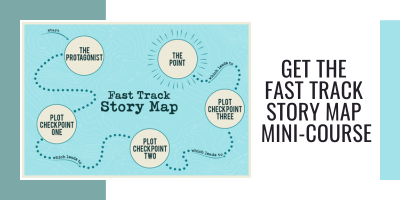 Have you ever considered who you write for?
Have you ever considered who you write for?Do you write for yourself, for the thrill of pouring out the stories in your mind onto the page?
Or do you crave that special connection with readers, wanting to touch their hearts and minds with your words?
But here's the real question: Does it even matter?
Absolutely! In fact, the answer should be a resounding "yes" to both choices. Let me tell you why:
WRITING FOR YOURSELF
As a writer, it's fun to play with words and ideas on the page, but it's essential to understand why you are writing, in order to craft a compelling story. What's the burning reason behind telling this story? Why are you the one to tell it?
Now, it might sound like a no-brainer, but taking a moment to dig deep and answer these questions
fully will not only give your story strong roots, but also anchor you when writing gets tough. And anyone who has written anything knows that writing can be a rollercoaster ride. There are days when you show up, and nothing comes out. That's when having a solid connection to your "why" becomes your lifeline.
But determining your personal motivation to keep going when things get hard is not the only benefit of understanding your “why.”
When we write, we're creating something that will likely outlive us. As Carl Sagan says in his epic book, Cosmos, "Books break the shackles of time". When you write a story, you transcend time. You create magic. You take up space. You declare, "This is what I have to say, and I'm saying it to you." Storytelling is an incredibly intimate interaction with a reader.
Yes, this can be terrifying, and it should be! Who are you to dare to take up space and break the shackles of time?
You dare, because you believe you have something to say, something that only you can express in your unique way. Otherwise, you wouldn't bother. You wouldn't write.
When you can pinpoint that inner fire that fuels your storytelling, no resistance or fear can stand in your way. By digging deep, understanding your motivation, and owning your "why," you're not just scribbling for fun or because someone told you to write a book, or because you have a way with words. You're tapping into something much more profound and compelling. It's this connection to your source that will infuse your story with a power that resonates with your readers.
WRITING FOR YOUR READER
Understanding your reader is crucial to your story, but an ideal reader can be challenging to define. When asked, many writers often give vague answers like "romance lovers," "middle-aged moms with teenagers," or even the very safe and hopeful, "everybody."
Of course, we all secretly hope that everyone falls head over heels for our story, right? But it's important to start with a more precise group of readers.
You may have heard of creating a reader profile. It's similar to sketching out a character, but instead, it's all about your ideal reader. You perhaps give your reader a name, an age, a location, a job, hobbies, family, etc.. These nitty-gritty details are important because they help you envision your target demographic.
But there's actually more to defining an ideal reader than that. It's important to go deeper and ask some fundamental questions about your reader:
- What keeps them up at night?
- What do they want more than anything else in the whole wide world?
- And most important: How the does your book help them achieve that burning desire?
Your book needs to help your ideal reader where it hurts, hitting their pain points head-on.
While helping readers where they hurt might seem relevant only to self-help books, understanding which readers need your story will enable you to deliver your message directly to them.
SO, WHO DO YOU WRITE FOR?
Writing for yourself and connecting to your deep level "why", allows you to tap into that inner fire, embrace your unique voice, and articulate your deepest connection to your story.
But don't forget about your readers. By understanding their desires and struggles, you can craft a book that speaks directly to their hearts.
So, embrace this dual journey. Write for yourself with passion and authenticity by identifying your deep level "why". And write for your ideal reader, helping them where they hurt, and creating a story that sparks that connection.

Love this content?
Subscribe to The Story Guide Dispatch for more!
Find Story Guide




















0 Comments